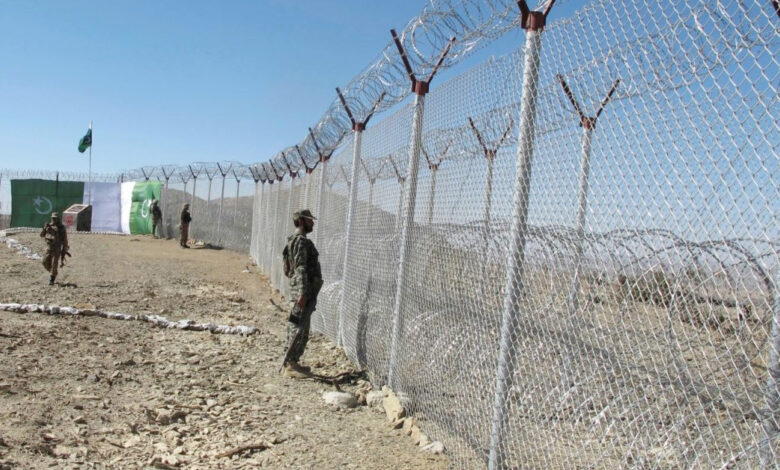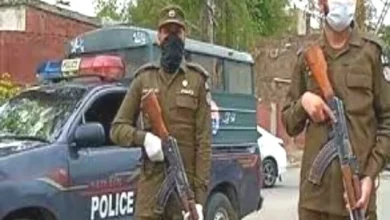Security Challenges on the Western Border

Security issues are not a recent phenomenon for Pakistan. They continuously reappear to panic the country. While Pakistan’s greatest adversary remains India, the state is perhaps oblivious to the rising security issues on the Western front. Among other cases, a recent cross-border attack from Afghan soil resulted in four civilians and three military personnel injured, which is a huge question on Pakistan’s security. These challenges remain a key concern for Pakistan– even after 20 years in the War on Terror, the terrorist elements continue to haunt the country today.
Unfortunately, the geographical location of Pakistan has become a curse– on the Eastern side it is surrounded by India, and on the West, it shares a large border with Afghanistan which is an epicentre of terrorist groups. For a country like Afghanistan, the formation of the Taliban government is not the end, there is still a struggle for power in the country – given that it is home to several non-state actors, among which the most active are Tehreek Taliban Pakistan, Al-Qaeda, and Daish, with the addition of Jabhat Ansar al-Mahdi Khorasan (JAMK), a newly emerged militant group.
Pakistan does have an existential threat from India; however, the character of war has changed now– states are more into proxy means to achieve their goals, rather than going into a direct confrontation. Terrorist organizations, private security groups, and intra-state wars mainly characterize contemporary conflicts such as in the case of Yemen, Syria, Afghanistan, and Iraq. Therefore, Pakistan’s intelligence agencies must strengthen their grip on non-state actors and develop more sophisticated strategies to identify the perpetrators. Otherwise, Pakistan might take decades to recover from the security puzzle
Fortifying borders is crucial for the state’s security. Weak border security only means vulnerability. According to a report, Pakistan has witnessed about 245 terrorist acts in the first three months of 2024– specifically in areas of Khyber Pakhtunkhwa (KP) and Balochistan, both adjoining Afghanistan on the Durand Line. The nuclear power has consistently asked the Afghan government to take stringent measures in order to halt the flow of terrorists across the border, which is the root cause of violent activities in Pakistan.
Seemingly, very little development has been made in this regard by the Afghan government, and each year, numerous terrorists smuggle themselves into Pakistan and carry out violence. In a recent effort to infiltrate the Pak-Afghan border, seven terrorists were killed by the Pakistan military in the North Waziristan district. In response to this, the Inter Services Public Relations (ISPR) stated that the Afghan government was supposed to deny misuse of Afghan soil by radical elements for any acts of terrorism against Pakistan’s territory.
The security forces of Pakistan are always vigilant against terrorist acts; however, it takes two to tango – both neighbours have to play equal parts on their sides to counter this issue.
It sounds absurd to criticize Afghanistan and Pakistan alone while neglecting the role of India which has been consistently trying to undermine the national security of Pakistan by using proxy means– a tactic which is widely used today by many states to disorient the population of their enemy. The country has been accused on multiple occasions of providing financial and political support to separatist forces such as the Baloch Liberation Army (BLA), which recently claimed responsibility for the attack on a naval air base in Turbat, Balochistan. India continuously supports such heinous acts to divide Pakistani society.
Further, security matters have one bad aspect: they serve as a choking agent for the state’s economic projects. A recent suicide bomb attack on the convoy of Chinese engineers near the Dasu dam project killed five Chinese nationals along with one Pakistani citizen– ultimately leading to a temporary suspension of the project by the Chinese government. In a statement, Interior Minister Mohsin Naqvi claimed that the attack was coordinated by the outlawed Tehreek Taliban Pakistan (TTP) from Afghan soil, and the authorities have concrete evidence for it– adding that the intelligence agencies of Pakistan’s enemy sponsored the attack.
The energy sector in Pakistan is already fragile, and incidents like these make it worse. As expected, the major dam project has the potential to produce 4320 MW of electricity but has continuously been undermined by terrorist acts and hence delayed. Surely, the enemies of Pakistan do not want the country to stand on its feet.
As Pakistan faces these challenges time and again, it must learn one crucial lesson: without combating terrorism the country is going nowhere in the future. Security remains one of the essential elements of national power– for this reason, the government of Pakistan must tighten checks and balances on its Western border, to cut off the aid that terrorists receive from external forces. Similarly, negotiations or mutual agreements with the Afghan government might serve fruitful for the best interests of both neighbours.
Pakistan does have an existential threat from India; however, the character of war has changed now– states are more into proxy means to achieve their goals, rather than going into a direct confrontation. Terrorist organizations, private security groups, and intra-state wars mainly characterize contemporary conflicts such as in the case of Yemen, Syria, Afghanistan, and Iraq. Therefore, Pakistan’s intelligence agencies must strengthen their grip on non-state actors and develop more sophisticated strategies to identify the perpetrators. Otherwise, Pakistan might take decades to recover from the security puzzle.
Source link



